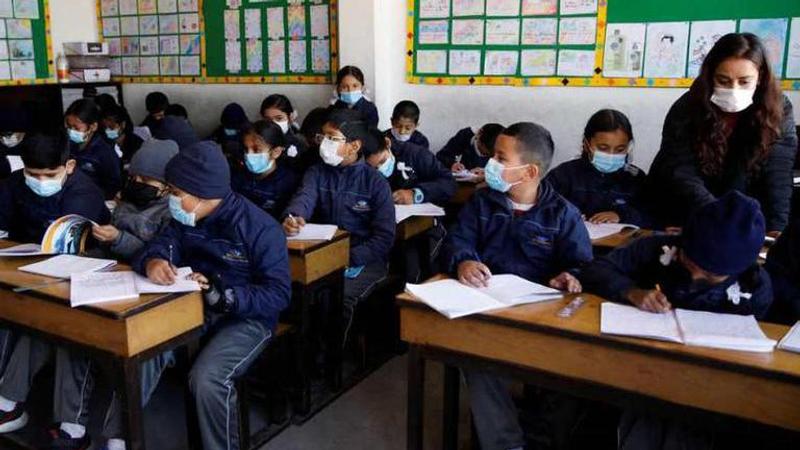Published 16:46 IST, June 29th 2020
COVID-19 a setback for education sector, govts need to address inclusion challenges: UNESCO report
The COVID-19 pandemic will have a considerable setback on learning, according to the UNESCO's Global Education Monitoring Report, which also urges governments to rebuild education systems that are better and accessible to all.

The COVID-19 pandemic will have a considerable setback on learning, according to the UNESCO's Global Education Monitoring Report, which also urges governments to rebuild education systems that are better and accessible to all.
The report said that assessing the effect of school closures on COVID-19 infection rates “has been filled with uncertainty, as conclusive evidence is yet to emerge, making the issue at times quite divisive”.
“Some teachers who belong to vulnerable groups are concerned that their health is at risk. Only a minority of countries can enforce strict social distancing rules in schools," the report said.
It said that depending on the structure of academic year, school closures have affected their calendars, teacher training and licensing schedules, besides examinations.
“Overall, the setback on learning is expected to be considerable, although its magnitude is difficult to pin down.”
The fourth edition of the annual report, which was launched recently, has pointed out that COVID-19 pandemic will impact the disadvantaged students more who have fewer resources at home, and it would increase socioeconomic gaps.
"Among low- and middle-income countries, 17 percent are planning to recruit more teachers, 22 pc to increase class time and 68 pc to introduce remedial classes when schools reopen. How such classes are planned and targeted will be critical to whether disadvantaged students can catch up.
"The COVID-19 crisis has shown that the issue is not just about technical solutions to tackle the digital divide. Although distance learning has captured many headlines, only a minority of countries have the basic infrastructure to focus on the pedagogical challenges of online approaches to teaching and learning. Most children and youth have suffered a short-term direct, but hopefully temporary, loss of learning," it said.
The Global Education Monitoring Report (GEM Report) is developed by an independent team and published by UNESCO.
It has the official mandate of monitoring progress in meeting the Sustainable Development Goal on education.
The report provides an in-depth analysis of key factors for exclusion of learners in education systems worldwide, including background, identity and ability, gender, age, location, poverty, disability, ethnicity, indigeneity, language, religion, migration or displacement status, sexual orientation or gender identity expression, incarceration, beliefs and attitudes.
"Concern remains about more lasting effects, likely to be brought about indirectly by the recession, which will throw millions of people back into poverty,” said the report.
“Many low- and middle-income countries have not been able to support learners at risk of exclusion during the COVID-19 pandemic. Governments need to take a close look at the inclusion challenges to rebuild education systems that are better and accessible to all learners.”
According to UNESCO estimates, over 154 crore students are severely impacted by closure of educational institutions across the world amid the COVID-19 outbreak due to which girls will be the worst hit as it will lead to increased dropout rates and further entrench gender gaps in education.
Updated 16:46 IST, June 29th 2020




